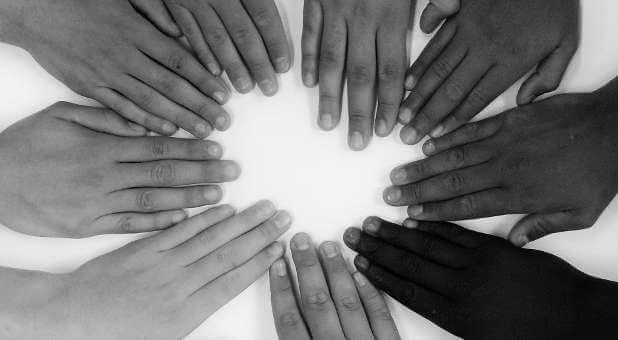Colorblindness is not God’s goal for humanity. Rather, He wants us to see us all as children of God under the love of God, under the power of God, under the protection and covering of God.
It’s about us coming together across all the things that would separate us. It’s about loving people beyond the external color and seeing their internal intrinsic value. A value given to each one of us by the God who wrapped that intrinsic value in a visible color, a unique hue, a compelling shade.
“Ethnicity,” then, means your looks, your likes, customs, language, religion and liturgy. The grace that is on race is based on the blessing of Abraham because, as the apostle Paul says, we are all heirs of Abraham; and as God said to Abraham, they will all be blessed. We all have an inheritance, and it is for all who are in Christ and for all who are in the loving care and comfort of God.
Yet, God never requires that we stop being the individuals we are because we are who He made us. The catch is, He loves us exactly as He made us, and any desire to be something other than God has made you is a step in the direction of the temptation of bias, and division is not of God. Let you be you. Let you see yourself in the blessing of Abraham. Just as unique as you. Just as different as you. Just as human as you. Just as God-loved as you.
Jesus prayed in John 17:21-22, “Lord, make them one.” He says that prayer in a room with 12 men who could not have been more different from one another. God says, make them one, yet the church itself, which should be on the front lines in this way, has often been on the side of the enemy, contributing to the disregard, the delay, the destruction of the unity for which our Lord prayed.
Reconciliation, then, contains and implies the assumption that you go back to a point where there was unity. For example, Paul argues that, spiritually, we were one with God, and that oneness was destroyed and damaged because of sin. The goal of reconciliation is to remove the issue of sin that has divided us, so we can then be back in unity and oneness with God.
How do we do that?
Paul says we can be reconciled with God because the issue that divided us—which was sin—was dealt with when Jesus hung crucified on a cross between two thieves and died, granting forgiveness of our sins, therefore removing it, making us one with Him.
Any ideology, framework or assumption, including so-called colorblindness that attempts to diminish the uniqueness with which God made us is not conducive to reconciliation. If the church is to be a catalyst for racial reconciliation in this nation, we must embrace every brother and sister for their differences to achieve the holy unity for which Jesus prayed and petitioned. Christians cannot tolerate, hint at or so much as wink at the acceptance and promotion of racism if we are ever to move forward into spiritual unity.
The painful truth is that the history of our country has been constructed upon a hierarchy that places some on the top and some on the bottom, where those on the bottom struggle for equity to see those above, let alone pass or be on the top. So, if the idea of reconciliation means to go back upon a previous assumption, it’s a false assumption in the natural.
Yet, fortunately for us all, there is a God, and there is the power of the Spirit of the living God that can cross every barrier, bring down every wall, cross every division, bring unity where there has been division, make a way out of no way, open the door where there is no door, by the power of the living God.
Adapted from Walls Can Fall, by Bishop Kenneth C. Ulmer, senior pastor of Faithful Central Bible Church in Inglewood, California, now available for purchase.












